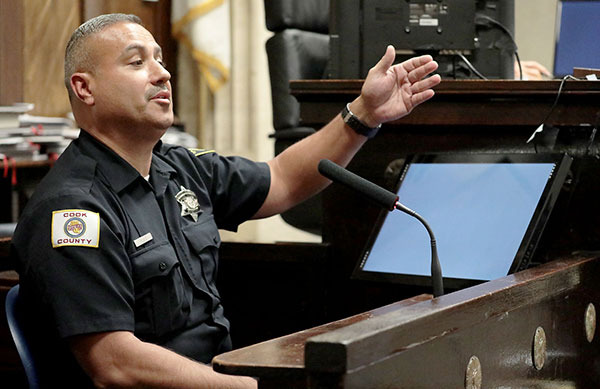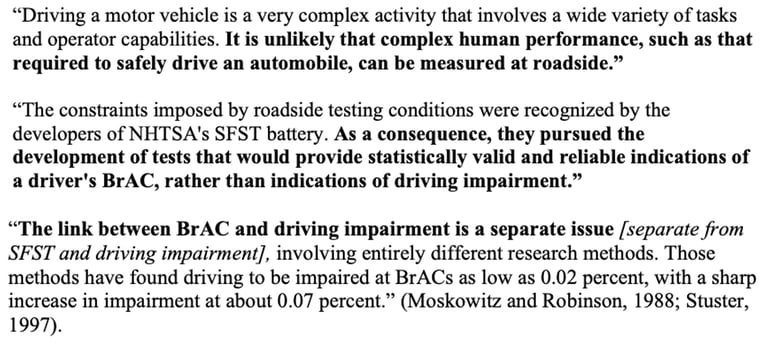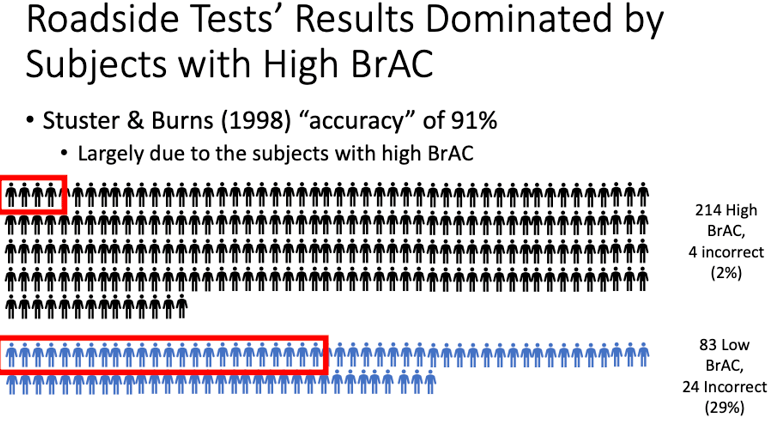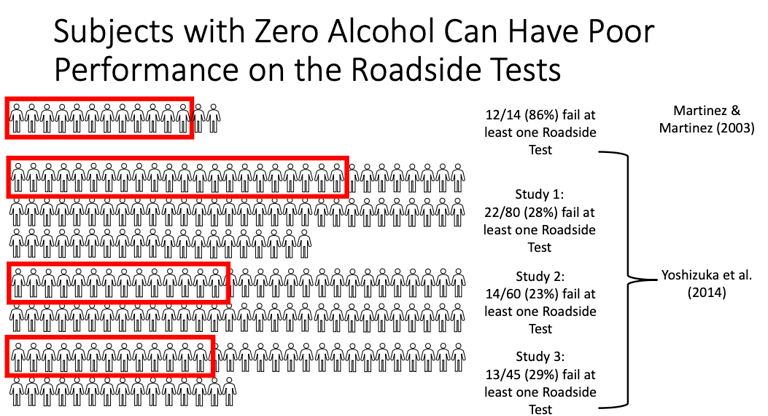Bulldog Law
Standardized Field Sobriety Tests (SFSTs)
The way SFSTs are used in trial
Prosecutors and officers describe SFSTs as "divided-attention tasks." They'll explain that the tests divide your attention between remembering instructions and completing those instructions as physical tasks. And then they'll argue that driving is a divided attention task in the same way.
No study has ever validated this argument.


Statistical Validation Claim
The National Highway and Traffic Safety Administration (NHTSA) has conducted several studies that claim to statistically validate SFSTs.
Those studies actually argue that there is no connection between performance on the SFSTs and driving impairment. See these quotes from the NHTSA statistical validation studies themselves.
The connection those studies claim to make is between the performance on SFSTs and a likelihood of having consumed alcohol.


Low BrAC participants were underrepresented
The NHTSA claims that officers got 91% of the guesses correct after performing the SFSTs, but that is not an honest representation of their own results. They correctly guessed whether suspects were over 0.08 91% of the time, but 73% of the suspects had high BrACs. Of those with low BrACs, the officers got the results wrong 24% of the time.
It is not surprising officers were able to get the right answer most of the time when 72% of the suspects had a high BrAC and 79% of the time the officer guessed the suspects were over the 0.08.


There were no sober participants in the Validation Studies
The NHTSA validation studies included zero sober persons. That said, two studies (which NHTSA has chosen not to consider) have included sober persons. And in those two studies, sober persons did not perform well either.




SFSTs have no statistical meaning
All NHTSA's validation studies have managed to validate is that when people are particularly drunk, officers are likely to accurately guess that suspects have BrACs above the legal limit. The studies have not established that this is built on performance of the SFSTs. All of the participants in the validation studies were already suspected to be driving under the influence before SFSTs were performed.
This work on the statistical underpinnings of the SFSTs has been a combined effort of Jared and the brilliant Dr. Nayak Polissar, owner of The Mountain-Whisper-Light: Statistics & Data Science (https://www.mwlight.com/).
